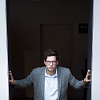Diction on a seesaw: a report on the RIAC conference on EU-Russia relations / Part 2
In
Log in if you are already registered
Continued from here
For those who stretched out in the quaint idealism of the first session, Anatoly Chubais’ speech must have come as a cold shower. Opening the second panel that addressed the economic parameters of the partnership and featuring representatives of big business, Mr Chubais said that the Customs Union has to be reflected in the negotiations as free trade between the EU and non-WTO-member Belarus and Kazakhstan is hardly imaginable. Downright contradicting Mr Barroso’s somewhat cliché suggestion of a free trade area stretching from the Atlantic to the Pacific, the father of Russian privatization said that such talk ‘goes beyond political and economic realities’.
Switching to a constructive approach, Mr Chubais talked about boosting mutual trade, protection of investment and intellectual property, visa simplification (not complete liberalization!) and cooperation in tackling cyberterrorism: realistically-sounding medium-term goals.
Much like in the first round, the discussion followed the tone of the opening speech. Lukoil President Vagit Alekperov talked about the need for a legal framework for mutual investment – the enhancement of which is surely underway. Isaac Sheps, CEO of Carlsberg Russia lamented the lack of trust in ‘foreign companies’ coming from the people, nurtured by the Kremlin. He called the government unprofessional for their use of health standards to protect local interests (dealt with in my blog post from February 28th).
Where Moscow’s protectionism seems odd for Mr Sheps, it does not at all to Reiner Hartmann, E.On Ruhrgas director and Association of European Business in Russia chair. Looking at everything from the energy-dialogue to corruption to Eurasian integration with blatant optimism, Mr Hartmann took his role so far that the moderator of the third panel, Igor Yurgens, noted that he appeared to represent Russia more than Europe.
Apart from him, the only prevaricator in this panel was again Wolfgang Schüssel, who seemed overwhelmed by business people being ‘always ahead’ and called our century that of the entrepreneurs.
Although Mr Lipponen expressed his regret that ‘businessmen’s pragmatism is a lot less optimistic than that of politicians’, perhaps it is really just a lot more pragmatic. The down-to-earth attitude of business was sceptical about big words of a big future, but they seemed to be aware that wider cooperation is in their best interests.
Dodging the bullet
The most controversy could, no doubt, be expected from the third session, addressing the role of Eurasian integration in the development of EU-Russia relations.
Mr Hartmann, on stage again, did not hesitate to declare the Customs Union to be in direct competition with the EU, but he seemed impressed with the pace and straightforwardness of the negotiation process. He assured everyone that business sees the advantages of Eurasian integration.
Hardly so the European Union, you might think. But in an air of gentlemanship and diplomacy, both European Parliament representatives, Libor Rouček from the Socialists and Democrats and Rachida Dati from the European People’s Party articulated the EU’s acceptance of what they called a ‘natural’ integration process in the post-Soviet space.
Mr Rouček said that Eurasian integration, as any pursued along democratic principles, is in Europe’s interests. Regarding the opportunities that are expected to arise from bloc to bloc negotiations, he remarked: a major problem is that apart from S&D, no EP party families have Duma counterparts. With this, however, he did reveal his doubts about equality in Eurasian integration. The Moscow correspondent of the Spanish daily El País, Pilar Bonet, voiced a similar concern in the Q&A session that followed the discussion: she asked why no representatives of CU member states Kazakhstan and Belarus had been present.
Notably, Mr Rouček expressed his conviction that Ukraine had already decided to go with the EU instead of the Eastern option, which was certainly not good news for Andrei Denisov, First Deputy Minister of Foreign Affairs of Russia. For Mr Denisov was not afraid to call a spade a spade: he expressed the Russian Government’s concerns about the EU strengthening its position in the ’area of overlap of interests’.
Mr Rouček’s assurance that ’no new iron curtain shall be constructed’ scarcely took the edge off Mr Denisov’s words. But Eurasian Economic Commission Trade Minister Andrei Slepnev nonetheless predicted bloc to bloc cooperation. In face of Mr Rouček and Ms Dati’s denouncement of historical prejudice and their declaration that enabling the free movement of people and goods is a top priority, there might be some hope for that.
Step where?
RIAC President Mr Ivanov said in his closing remarks that Russia and the EU had taken a step towards each other at the conference. Maybe so; but we need not imagine any plans to be drawn up at an event like this. The main advancement made here was mutually admitting the inevitability of Russia-EU partnership.
Many agree that a common vision and mutual trust are preconditions for further cooperation. But care must be taken not to hijack the discourse by speaking in generalities and elaborating on run-of-the-mill ideas. Some European participants did exactly this, while others, including Mr Barroso, spoke of grandiose plans that seem little conceivable in the medium or even long term.
At odds with this stood the unaffected pragmatism of Russian partakers. Speaking in simple terms about feasible steps to support and intensify mutually beneficial trade relations, they certainly worked toward the cause.
It is reiterated to the point of being a trite that the EU is a ’community of values’. Its officials might therefore easily get the notion that it is fundamentally on the level of values that they are on different terms with their Russian counterparts. But, given the importance of cooperation, self-respect should not turn into disdain. A little pragmatism could help.




